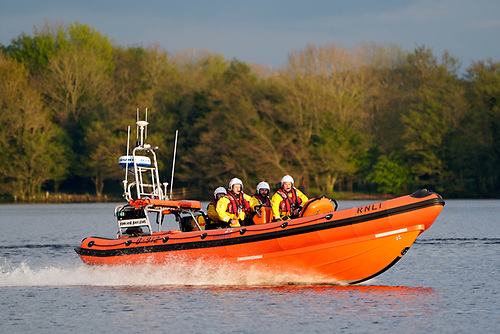Displaying items by tag: Okeano
Ireland at Forefront of New Cross-National Group Supporting Atlantic Ocean Research and Innovation
The Marine Institute’s director of policy, innovation and research services is leading a new cross-national support group for Atlantic Ocean research and innovation.
Through a large-scale basin effort, representatives of 16 organisations from 12 countries including Ireland have joined forces to establish the Okeano Coordination and Support Action (CSA).
Funded under Horizon Europe to support the All-Atlantic Ocean Research and Innovation Alliance (AAORIA), Okeano “marks a significant milestone in the journey towards sustainable management of the Atlantic Ocean”.
Okeano follows its two successful predecessor CSAs, the Atlantic Ocean Research Alliance and the All-Atlantic Cooperation for Ocean Research and innovation.
The main objective of Okeano is to provide coordination and support to the All-Atlantic Ocean Research and Innovation Alliance, ensuring effective governance, cooperation and communication among signatories, across the Atlantic Ocean, from pole to pole.
Okeano aims to facilitate dialogue and cooperation at local, national, and international levels, to consolidate existing initiatives and to tackle socio-environmental issues in the Atlantic region, such as climate change, biodiversity loss, pollution, ecosystem protection and restoration, and sustainable and inclusive ocean economies.
Signed in 2022, the AAORIA Declaration builds on the foundations of the Galway Statement on Atlantic Ocean Cooperation and the Belém Statement on Atlantic Research and Innovation Cooperation.
Furthermore, its objectives align with the EU's priorities outlined in the European Mission Restore our Ocean and Waters by 2030, the partnership for a climate-neutral sustainable and productive blue economy, the European Green Deal, and international dimension of the EU Atlantic Action Plan.
With AAORIA’s motto being ‘Connecting-Cooperating-Acting’, Okeano will serve to scale and transition the alliance to a long-term, sustainable and highly impactful international partnership, capable of delivering transformative science and innovation, and concrete benefits for Atlantic communities.
The inaugural meeting of OKEANO was held on 7-8 March at the JPI Oceans Secretariat in Brussels, with representatives from Argentina, Belgium, Brazil, Cabo Verde, France, Germany, Ireland, Morocco, Norway, Portugal, South Africa and Spain in attendance.
 Participants at the inaugural meeting of OKEANO held on 7-8 March at the JPI Oceans Secretariat in Brussels
Participants at the inaugural meeting of OKEANO held on 7-8 March at the JPI Oceans Secretariat in Brussels
The kick-off meeting, attended by project partners and representatives of the European Commission, focused on outlining detailed methodologies for achieving the project’s strategic objectives.
Dr Niall McDonough — director of policy, innovation and research services at the Marine Institute and coordinator of Okeano — chaired the meeting, with Dr John Bell, director of healthy planet at the European Commission outlining the vision for the next phase of the alliance.
Participants discussed the work plan for the CSA, emphasising inclusivity, international cooperation and active societal engagement. The importance of facilitating access to a diversity of relevant data, knowledge, expertise, capacities and resources was addressed, positioning Okeano as a pivotal point of contact to link scientists, researchers, public and private stakeholders, including civil society and youth.
“The Okeano project is ready to support and contribute to the goals of a growing and dynamic alliance,” Dr McDonough said. “Through its range of planned activities and strong international partnership, we are committed to reaching and empowering communities across the entirety of the Atlantic to respond to the complex challenges presented by issues such as climate change and ecosystem protection and restoration.”
Focus areas of Okeano include:
- Enhancing governance and coordination — led by the Marine Institute (Ireland): Providing professional support and coordination for the All-Atlantic Ocean Research and Innovation Alliance governance, organisation, monitoring and outreach activities.
- Facilitating dialogue across stakeholders — led by the AIR Centre (Portugal): Fostering collaborations with different organisations, and facilitating structured dialogue and coordination at local, national, international and multilateral levels between AAORIA and relevant stakeholders.
- Supporting and consolidating existing initiatives — led by IFREMER (France): Supporting and consolidating existing AAORIA initiatives, including capacity building for early-career ocean professionals (ECOPs) and youth to promote sustainability and community engagement along the Atlantic Ocean shores.
- Development of a Strategic Research and Innovation Agenda — led by KDM (Germany): Developing an All-Atlantic Strategic Research and Innovation Agenda aligned with the priorities identified in the AAORIA Declaration to foster knowledge exchange, innovation, and benefit to local communities across the Atlantic.
- Maximising impact through communication and outreach — led by JPI Oceans (Belgium): Maximising the impact of the Okeano CSA and supporting communication of AAORIA through effective dissemination, exploitation, and communication measures.
- Co-design and implementation of All-Atlantic Fora — led by the Marine Institute (Ireland): Co-designing and implementing international All-Atlantic Ocean Research and Innovation Fora to strengthen scientific cooperation and shared goals as outlined in the AAORIA Declaration.
Looking ahead, Okeano aims to foster a robust All-Atlantic Ocean Research and Innovation community, promoting cooperation, innovation and sustainable development across the Atlantic basin. By leveraging the collective expertise and resources of its diverse consortium, Okeano believes it is poised to support AAORIA in continuing as a long-lasting and robust community.




























































